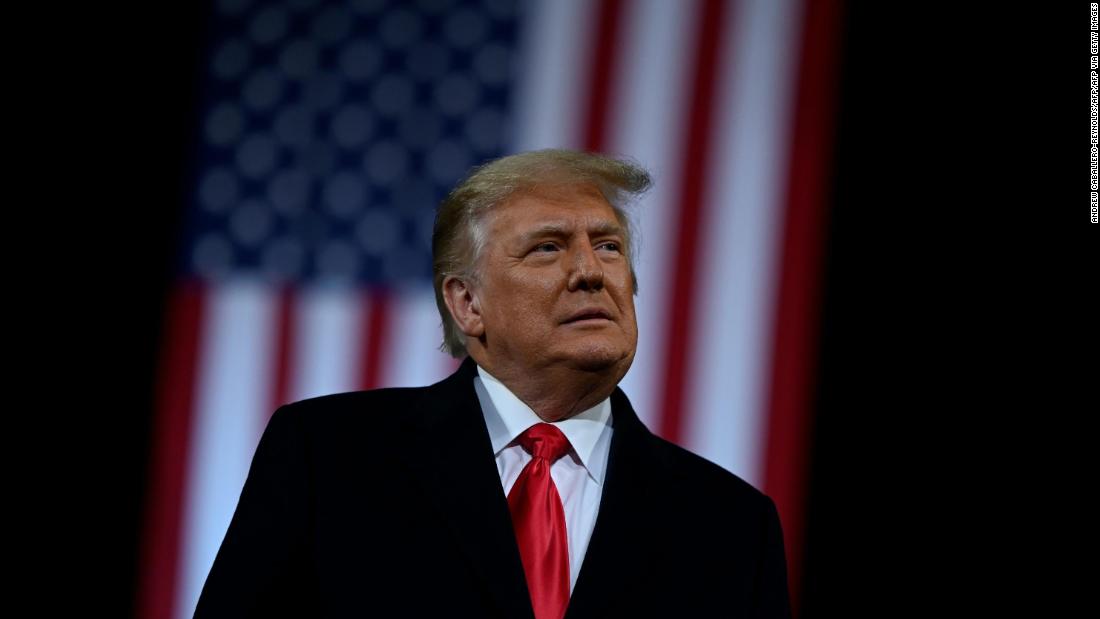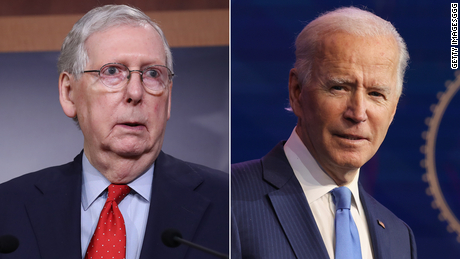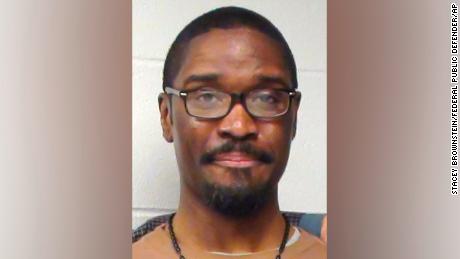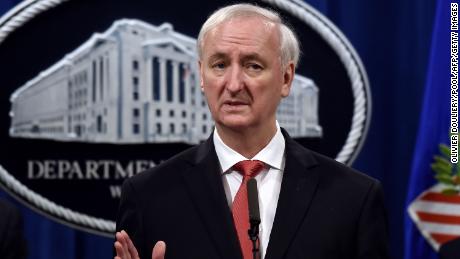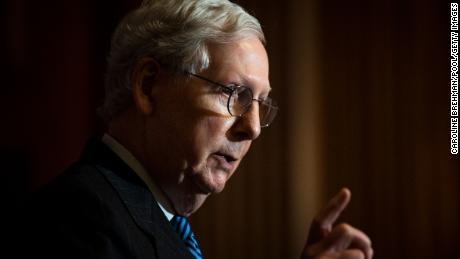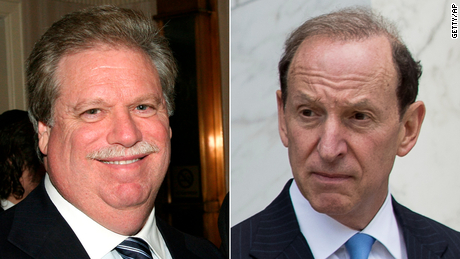Donald Trump’s allies — including business associates and many criminals — are ramping up efforts to use some of the last ounces of his presidential power
Since Trump lost the election six weeks ago, calls and emails have been flooding into the West Wing from people looking to benefit from the President’s powers of clemency. So inundated is Trump’s staff with requests for pardons or commutations that a spreadsheet has been created to keep track of the requests directed to Trump’s close aides.
Trump, who refuses to acknowledge his loss and who officials say is devolving further into denial, has nonetheless been eager to engage on who is requesting what. He’s been handed case summaries to review and, in some instances, has polled his network of associates about whom he should pardon.
With the end of his presidency nearing, Trump appears eager to wield his powers before he finds them gone. Unlike practically any other matter related to the end of his presidency, his clemency powers are a topic Trump actually seems to enjoy discussing, one person in communication with the President said, even though it amounts to another tacit reminder that his tenure at the White House is nearly over.
That’s a stark contrast with how Trump has responded to another, smaller effort also ramping up as Inauguration Day approaches: an effort to convince Trump to accept the election results.
The Electoral College’s affirmation of President-elect Joe Biden’s win this week did not appear enough to shake Trump from his delusions of victory, but it is adding urgency to a push by several of his advisers to gently steer Trump toward reality. Several of his closest allies have urged him to move on from his efforts to contest the election and begin planning his post-White House political future — including a potential 2024 run.
Yet even amid the intractable movement of the transition and the hurried lame-duck activity — some of which he is participating in himself — Trump is steadfastly refusing to acknowledge that he lost.
In his moments of deepest denial, Trump has told some advisers that he will refuse to leave the White House on Inauguration Day, only to be walked down from that ledge. The possibility has alarmed some aides, but few believe Trump will actually follow through.
“He’s throwing a f***ing temper tantrum,” an adviser said. “He’s going to leave. He’s just lashing out.”
The White House declined to comment for this report.
Yet even amid his delusions, Trump is behaving like a president in winter: abandoning the principal responsibilities of his job as he looks for ways to reward loyalists while he still can.
Pardon push
Nowhere is the end of Trump’s term more obvious than in the push for pardons.
“It’s turned crazy,” one person familiar with the efforts said. “There’s a lot of activity.”
Because Trump has shown little interest in using the Justice Department’s Pardon Attorney system for assessing requests for executive clemency, petitioners are approaching the White House directly, calling or emailing senior adviser Jared Kushner, chief of staff Mark Meadows or White House counsel Pat Cipollone — when they can’t get ahold of Trump himself.
“Everyone assumed there’s no formal process and they should reach out to the administration directly,” the person said. “Everyone hopes they have a friend of a friend of a friend of a cousin who they hope will get them to read their email.”
If there is a governing principle in who appears most likely to secure clemency, it is someone the President either knows personally or who has powerful connections lobbying on their behalf. At least one person working on behalf of clients seeking pardons said they hoped their loyalty to Trump over the past four years would pay off now.
As it happens, Trump is mulling the pardons at a juncture when loyalty appears his principal concern, complaining repeatedly over the past weeks that Republicans are deserting him when he needed them to help overturn the election results.
He has largely frozen out those advisers and associates who do not seem on the same page. One person who used to speak to Trump regularly, but who delicately encouraged him to soften his post-election stance, no longer has his calls returned and hasn’t heard from Trump in weeks.
In all, the President is considering pardons for more than two dozen people in his orbit whom he believes were targeted — or could be targeted in the future — for political ends. That’s in addition to hundreds of requests from others who have approached the White House directly, and tens of thousands more whose petitions are pending at the Justice Department.
Instead, Trump has focused more on those within his own circle, including Michael Flynn, his former national security adviser whom he pardoned last month.
Another name among the many under consideration for clemency: Allen Weisselberg, the chief financial officer of the Trump Organization, who has come under scrutiny by investigators for his role in hush money payments.
As of this week, officials said a preemptive pardon for Trump himself has also not been ruled out.
Digging in
Efforts to convince Trump to accept his loss have run up against a President who seems to be increasingly entrenched in his denial of Biden’s win, egged on by advisers like Rudy Giuliani and Jenna Ellis who are misleading Trump about the extent of voting irregularities and the prospects of a reversal.
While Trump had begun to privately accept the reality that he lost the election late last month, advisers say Trump has now reversed and dug in deeper — not only spreading misinformation about the election, but ingesting it himself.
“He’s been fed so much misinformation that I think he actually thinks this thing was stolen from him,” a Trump adviser said of the President.
The President also began asking whether he could appoint special counsels to investigate Hunter Biden and Trump’s baseless allegations of voter fraud, according to a person familiar with the matter, a step Barr is believed to oppose.
Cipollone, who is close with Barr, ultimately helped to arrange a meeting between the two men at the White House on Monday that resulted in a cordial exchange ending with Barr submitting his resignation.
Trump tweeted Barr’s resignation letter 23 minutes after the Electoral College officially tipped in Biden’s favor. As he has previously on days filled with particularly bad news — including after the Supreme Court denied his efforts to invalidate votes — Trump declined to appear at his own Christmas party, held one floor below his residence in the White House.
Avoiding the topic
Inside the White House, on the rare occasion that talk turns to Inauguration Day or life post-January 20, Trump all but shuts down. He has made clear to staff in recent days that he has no desire to discuss whether or not he’ll attend Biden’s swearing-in and has largely shut down any conversations about leaving office, according to multiple people familiar with the discussions. Because of that, the President’s senior aides have been reluctant to bring it up with him.
People close to Trump continue to regard it as highly unlikely that the outgoing president will attend Biden’s inauguration. “He won’t,” one adviser said of the current thinking inside Trump’s circle of allies.
Six weeks after Election Day, Trump has spent more than half of his days with no public appearances, showing little interest in the daily work of being president. In all, there have been 20 days with no public events at all listed on Trump’s schedule in the weeks since Election Day, and zero intelligence briefings. He’s held 13 public appearances open to the press, conducted a single on-camera interview, and taken questions from reporters on only two occasions. By contrast, he has spent nine days on his golf course.
Over the weekend, when he escaped Washington for only the second time since Election Day to attend the Army-Navy game, Trump remained as fixated as ever on his electoral loss. Driving in heavy fog from the airport to the West Point campus, Trump issued a tweet complaining about Georgia’s Republican governor.
Once there, Trump didn’t even stay until halftime, returning to his plane after taping an interview with Fox News.
CNN’s Kaitlan Collins and Jim Acosta contributed to this report.
![]()


